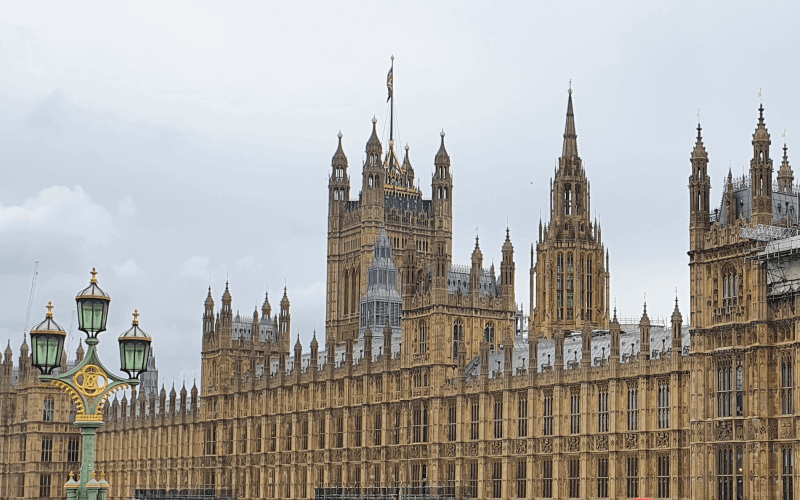More than 20 disability and welfare rights organisations and charities have told MPs that a new legal duty must be introduced to force the Department for Work and Pensions (DWP) to safeguard the wellbeing of “vulnerable” claimants of benefits.
Every non-government organisation that answered a question on whether a statutory duty should be imposed supported such a move, as part of an ongoing inquiry by the Commons work and pensions committee.
Disability Rights UK said the department’s refusal to accept that it had a statutory safeguarding responsibility to claimants in vulnerable situations was “shocking and shameful” and also “dangerous”.
It told the committee in its written response: “It means that the safety of claimants is not at the forefront of DWP policy and procedures and that any damage caused to claimants by DWP, falls to other services such as the NHS and social care to mop up.”
The disabled women’s grassroots group WinVisible called for DWP to have a statutory safeguarding duty, but it also warned that “safeguarding vulnerable claimants is not possible without tackling the systemic hostility of the benefits system towards sick and disabled claimants, and others needing financial support to survive”.
Possibly most damaging for DWP is that the Parliamentary and Health Service Ombudsman, which independently investigates complaints about UK government departments and the NHS in England, told the committee that it had “good reason to doubt the ability of DWP and its contracted agencies to consistently recognise, respond to and take full account of the vulnerabilities of some benefits claimants”.
It said it would “welcome further consideration of the introduction of a statutory duty to safeguard the wellbeing of vulnerable claimants”.
Money and Mental Health Policy Institute, a research charity set up by Martin Lewis to break “the vicious cycle of money and mental health problems”, based its written response on a survey answered by more than 300 people with mental distress.
It said DWP was “failing to adequately identify and assist those who are in vulnerable situations – and who face challenges navigating the DWP’s systems and processes”.
And it added: “Given how many people with mental health problems depend on the social security system, the DWP should have a legal requirement to safeguard the wellbeing of people with more complex needs and who require assistance.”
The Public Law Project, which has played a significant role in fighting for the rights of disabled claimants through the courts, called for DWP to be placed under “a specific statutory duty to safeguard the wellbeing of vulnerable claimants in order to increase the accountability of its practices”.
Among other organisations that backed the introduction of a statutory duty were Child Poverty Action Group, the National Association of Welfare Rights Advisers, Rethink, The Poverty Alliance and Women’s Aid Federation of England.
Another was Bromley, Lewisham and Greenwich Mind (BLG Mind), which told the committee: “Every week we see cases where our clients have ended up in unsafe situations because their benefits have stopped, and they have been too unwell to engage with the process of trying to get them reinstated.
“None of these cases are inevitable.
“Often the DWP could have prevented this harm by making further enquires with statutory services or attempting to contact others who are known to the client.”
BLG Mind told the committee of one client who had his personal independence payment removed after telling his assessor he was no longer in contact with his local mental health services.
The assessor and DWP decision-maker assumed his health had improved, but he had only been discharged from mental health services because he was too unwell to attend.
He fell into rent arrears and had to access his local foodbank, before BLG Mind successfully appealed on his behalf and DWP reinstated his PIP at the highest rates.
The only organisation that argued against a statutory duty was DWP.
It told the committee: “We support millions of people every year and our top priority is they get the benefits to which they are entitled to at the right time, and to ensure they receive a supportive and compassionate service.
“While the department does not have a statutory or common law duty of care, we engage with claimants and, where appropriate, direct or refer them to appropriate agencies who may owe a duty of care and can provide appropriate support.”
A note from the editor:
Please consider making a voluntary financial contribution to support the work of DNS and allow it to continue producing independent, carefully-researched news stories that focus on the lives and rights of disabled people and their user-led organisations.
Please do not contribute if you cannot afford to do so, and please note that DNS is not a charity. It is run and owned by disabled journalist John Pring and has been from its launch in April 2009.
Thank you for anything you can do to support the work of DNS…

 Government ignores warnings of new DWP deaths, and UN intervention, as MPs pass universal credit cuts bill
Government ignores warnings of new DWP deaths, and UN intervention, as MPs pass universal credit cuts bill Urgent letter from UN to Labour government warns: We think your cuts continue Tory attack on disability rights
Urgent letter from UN to Labour government warns: We think your cuts continue Tory attack on disability rights Race against time to secure DWP deaths evidence before parliament passes new benefit cuts bill
Race against time to secure DWP deaths evidence before parliament passes new benefit cuts bill